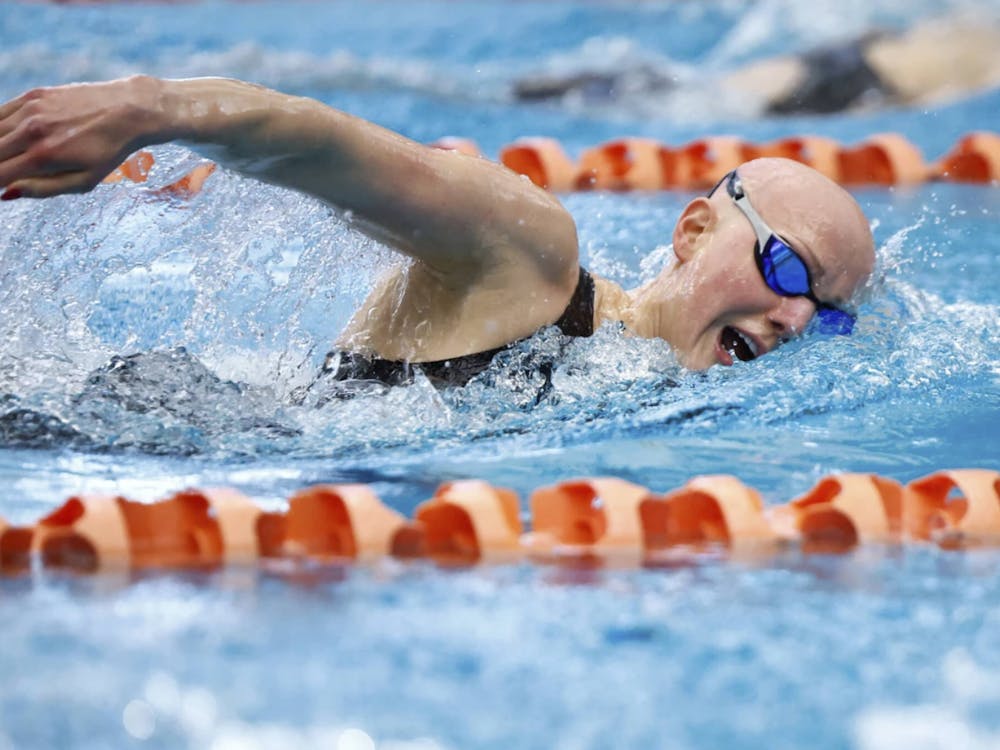Just the other day, as my column deadline closed in, I realized that I would have the task, the chance, really, to articulate the meaning of sports on a day in which we as a country are called upon to reflect our values and mourn those lost in the terrorist attacks last year.
From the basic standpoint, sports don't exactly go hand-in-hand with the situation. After all, as Mr. Crane pointed out in his column yesterday, the professional sports leagues abruptly cancelled games to pay respect to victims after 9/11.
The unique result of the invention of sports and games is the fact that you can win or lose and then go and play again. You have a real life outside of the game, and no matter how tragic the loss or how glorious the victory, other responsibilities or ties will influence you to move on from the loss or get over the victory.
So why are we talking about this in the same light as Sept. 11?
What happened last weekend in tennis at the U.S. Open in New York was an example of the kind of perseverance that relates sports to America's recovery.
I'm not talking about four Americans filling up final spots of the men's and women's tournaments, or even Pete Sampras or Serena Williams winning for the country in the city that's been through so much in the past year.
I'm referring to the aging veterans, Sampras and Andre Agassi, powering their way to the finals to maintain a rivalry that is more than a decade old.
Sampras, who with his 14 Grand Slam titles is arguably considered the greatest men's tennis player ever, appeared to age in decades rather then years since winning his seventh Wimbledon in 2000. Agassi, recently married to tennis legend Steffi Graf and now a father, has had more recent success but has fallen out of the rankings and had to come back more times than any recent tennis player. To add to the pressure, each time is usually written off as his last rise to the top.
Still, the two made a show out there on American asphalt, drawing the most viewers since Sampras defeated Agassi 12 years ago at the U.S. Open to win his first Grand Slam title.
The two were so emotionally drained from this four-set match, it's no surprise both of them declined the opportunity to compete in the Davis Cup in Paris to give their younger countrymen the chance to play in the team event.
The team captains would certainly not object to them playing, but each felt it was time stop and reflect, something I hope each of you can do today.
The wounds of Sept. 11, of course, cannot be healed in the tennis world, and, for some, the pain will always remain. What I have gotten from sports is a sense of substance to life that former New York mayor Rudy Giuliani said we should all go out and experience to get us back into the flow of things after the mourning.
When you take time out today to remember or just to listen to what others have to say about the events a year ago, set aside your own victories and losses and remember who you are and what you stand for.
For many Americans, part of who they are is highly influenced by someone who was killed or wounded in the terrorist attacks.
Others could look at something in their own identity that would give them definition -- a baseball fan, a student, a teacher or a politician.
In the case of Sampras and Agassi, the two gents renewed a rivalry that had seemed to empty out, gave life to a matchup that seemed to be whittling away as the men moved into their thirties.
Soon Sampras also will be a father and will have something else to liven up, a whole new responsibility outside of sports.
Regardless, the games always will be there, they will just shift to the background when appropriate.
In the end, it often comes to a simple decision that Sampras and Agassi are thankful to have made: sometimes you just have to pick up your racket and play.





